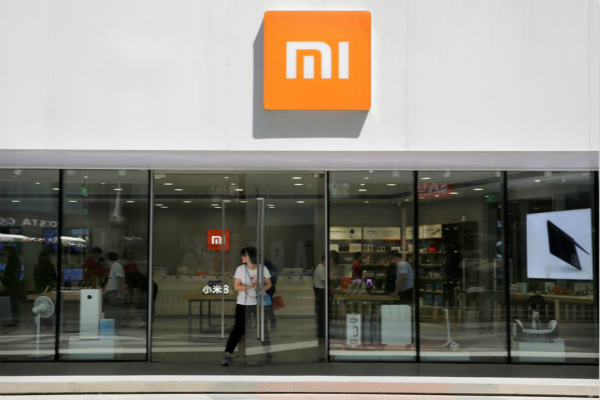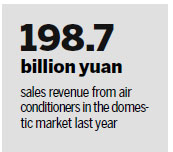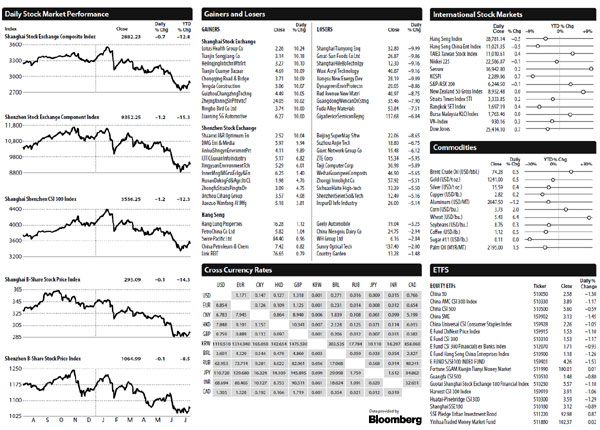 |
|
A customer walks out of a Xiaomi store in Beijing, June 21, 2018. [Photo/Agencies] |
Chinese tech company Xiaomi Corp has unveiled a new smart air conditioner in its latest effort to expand its smart product portfolio, but industry insiders warned traditional home appliance manufacturers have the upper hand and richer experience in their own sector.
Priced at 1,999 yuan ($295), Xiaomi's latest air conditioner features minimalist design, app control and voice commands, as well as precise temperature adjustment by 0.1 C, according to a statement from the company.
The tech giant has long been expanding beyond smartphones. Other home appliance products under its sub-brand Mijia include air purifiers, cleaning robots, rice cookers, smart lamps and cameras. These products are internet-connected and Wi-Fi-enabled, and can be controlled via the Mi Home app.
Lei Jun, founder and CEO of Xiaomi, said the company aims to "promote an upgrade in Chinese manufacturing with a new concept of 'Made in China' products".
However, experts say the competition in the air conditioner market is very fierce, and major Chinese home appliance makers such as Midea Group, Gree Electric Appliances Inc and Haier Group Corp still dominate the market.
For instance, Midea is investing heavily in the research and development of smart home solutions. Its intelligent air conditioners, which have Wi-Fi functionality and a camera, can adjust the temperature to adapt to human activity in a room.

"In the short term, the sales of Xiaomi's smart air conditioners will increase due to their relatively lower price and attractive appearance and design, but it will have little impact on the air conditioning industry," said Guo Meide, vice-president of Beijing-based consultancy All View Cloud.
According to Guo, unlike smartphones, air conditioners come with higher customer expectations for delivery, installation and after-sales services, but Xiaomi has some drawbacks in these areas.
"Xiaomi mainly focuses on online sales channels. In contrast, traditional air conditioners have certain advantages in offline sales channels, such as brick-and-mortar stores, and have accumulated rich experience in technology innovation to guarantee the quality of products," Guo said.
Liang Zhenpeng, an independent consumer electronics analyst, said Xiaomi tapping into the air conditioning sector could lower prices, sparking a new price war. Liang also said Xiaomi has insufficient R&D, after-sales services and installation, compared with traditional appliances giants.
According to China Market Monitor Co Ltd, sales revenue from air conditioners in the domestic market rose to 198.7 billion yuan in 2017, an increase of 32.4 percent year-on-year, with sales volumes reaching 57.87 million units, up 27.4 percent compared with the previous year.
All View Cloud estimated air conditioning unit sales will reach 53.13 million in 2018, down 6.4 percent year-on-year.
fanfeifei@chinadaily.com.cn
